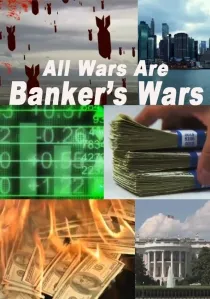When governments are the puppets of the banksters, getting citizens to accept the new currency is as simple as enforcing law. India is learning that the hard way!It is not an accident, it is policy. ~Ron
...Sure crypto-currencies sounds wonderful now as Bitcoin soars, but the policy makers and social engineers are way ahead with plans for the cashless society.In April 2015, Bitcoin Magazine reported that UBS was planning to investigate blockchain technology in a new innovation lab based in London.
The innovation lab is located in Level39, Europe’s largest technology accelerator space for finance and cyber-securities, and focuses on exploring the role of blockchain technology in financial services.
Get ready for the financial industry's new technology, central banks' blockchain finance:
Make No Mistake, "Settlement Coin" is ALL About BANKS
Why would anyone want to use a coin issued by four large banks bailed out in 2008? That's a question that many are asking after UBS, Deutsche Bank, Santander, BNY Mellon and ICAP announced that they had teamed up with blockchain developer Clearmatics to create a new digital currency. In a joint press release, the new consortium said that the "Utility Settlement Coin" would be used to clear and settle financial market trades on a blockchain. [...] The consortium aims to speed up central bank settlement processes and reduce the need for banks to maintain expensive collateral to meet short-term liquidity needs in real-world currencies, so that banks can increase the frequency of trading and make better use of capital. Instead of waiting to receive real-world currency via a central bank real-time gross settlement (RTGS) systems, banks could simply issue Utilities Settlement Coins to meet their obligations and carry on trading.Of course, as Hyman Minsky said: "Anyone can create a currency, the problem is getting others to accept it."
[...]
Reserves and collateral are low-yielding assets that clog up bank balance sheets. Banks would really like to find a means of settling without having to pledge collateral at central banks. In fact, ideally they would like not to have to use central bank money at all.So, although the Utilities Settlement Coins would be backstopped by central banks, once the majority of banks agreed to accept the Utilities Settlement Coins (aka joined the consortium), the banks could simply dispense with (U.S. dollars) central bank money.
As Matt Irvine at Bloomberg points out:
"But for many purposes – for example, just doing more transactions with other banks – the pseudo-dollars are just as good as dollars. If every bank signs on for this, then they can go out and buy more securities with their pseudo-dollars, and rarely need to bother with the Fed." -coindesk.com
CASHLESS SOCIETY: Central Banks' Cryptocurrencies
8 years ago
in#bitcoin
12 Comments

